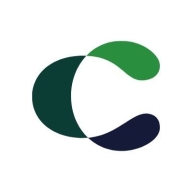

SonarQube and Contrast Security Assess compete in application security and code quality analysis. SonarQube is favored for cost-effectiveness and strong code inspection, while Contrast Security Assess excels in real-time vulnerability detection.
Features: SonarQube offers static code analysis, supports over 20 programming languages, and hosts an active community for support. Contrast Security Assess integrates directly into application environments, provides real-time vulnerability detection during execution, and includes OSS licensing for open-source usage tracking.
Room for Improvement: SonarQube could enhance its real-time assessment capabilities, better integrate dynamic security tools, and improve licensing models for cloud technologies. Contrast Security Assess may benefit from a reduction in initial deployment complexity, better documentation for integration processes, and increased language support diversity.
Ease of Deployment and Customer Service: SonarQube is praised for straightforward deployment and comprehensive community support. Contrast Security Assess combines robust customer support with a cloud-based model, which simplifies integration and maintenance but is noted to initially demand more complexity.
Pricing and ROI: SonarQube is more economical, appealing to smaller teams or startups due to lower initial costs and an open-source approach which enhances ROI. Contrast Security Assess, despite higher upfront costs, provides advanced security features for long-term benefits, making it a strategic investment for enterprises prioritizing comprehensive security.
| Product | Market Share (%) |
|---|---|
| SonarQube | 16.9% |
| Contrast Security Assess | 1.3% |
| Other | 81.8% |
| Company Size | Count |
|---|---|
| Small Business | 2 |
| Midsize Enterprise | 3 |
| Large Enterprise | 6 |
| Company Size | Count |
|---|---|
| Small Business | 41 |
| Midsize Enterprise | 24 |
| Large Enterprise | 79 |
Contrast Security is the world’s leading provider of security technology that enables software applications to protect themselves against cyberattacks, heralding the new era of self-protecting software. Contrast's patented deep security instrumentation is the breakthrough technology that enables highly accurate assessment and always-on protection of an entire application portfolio, without disruptive scanning or expensive security experts. Only Contrast has sensors that work actively inside applications to uncover vulnerabilities, prevent data breaches, and secure the entire enterprise from development, to operations, to production.
SonarQube leads automated code review, enhancing code quality and security in AI-driven SDLCs. It analyzes pull requests, providing developers with actionable feedback and AI-driven fixes before code merges. Trusted by top enterprises, it supports SaaS and self-managed deployments.
SonarQube supports a wide range of programming languages and integrates seamlessly with CI/CD tools like Jenkins. It is renowned for its static code analysis, code coverage, and security vulnerability detection. While its open-source foundation and scalability are praised, users seek enhanced integration across multiple languages, better security features, and improved documentation. Despite challenges, its ability to automate code inspections and ensure compliance with coding standards makes it essential in software development processes, facilitating continuous improvement.
What are the most important features?In industries like finance, healthcare, and automotive, SonarQube is leveraged for static code analysis, automating code inspections, and ensuring compliance with stringent standards. Teams integrate it into their CI/CD pipelines to maintain high-quality code, identify security vulnerabilities, and enhance code maintainability.
We monitor all Application Security Tools reviews to prevent fraudulent reviews and keep review quality high. We do not post reviews by company employees or direct competitors. We validate each review for authenticity via cross-reference with LinkedIn, and personal follow-up with the reviewer when necessary.